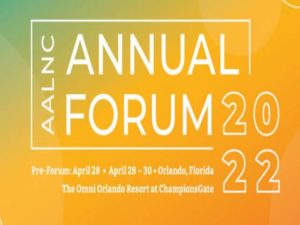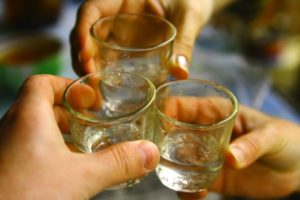The Effects of Alcohol on Wound Healing
Healthcare providers have always been under pressure to ensure a good outcome for their patients. However, while they can control the care they give, providers can never guarantee the positive results of a patient’s treatment. Substance use, poor diet, noncompliance, difficulty accessing followup care, and other social factors can all play a role in patient outcomes. Providers can adjust their treatment plans to account for these but cannot control them.
Here’s a look at one aspect of patient behavior that can affect outcomes, the effects that drinking alcohol can have on wound healing.
What Normal Wound Healing Looks Like
No matter the cause of the injury, there are four stages that all wounds go through as they heal. A good analogy of these stages is to compare them to repair of a damaged house. As you can imagine, if something interrupts these processes, the wound may not heal well or at all.
- Hemostasis: Platelets aggregate and blood vessels constrict forming clots to stop the wound from bleeding. This is like utility workers capping off the broken utilities at a damaged home.
- Inflammation: A type of white blood cell called a neutrophil enables the breakdown of damaged tissues. This is your contractor directing laborers to remove debris from the site.
- Proliferation: Various types of cells go to work to fill in the wound and close it. These are your subcontractors starting work on repairs in their areas, e.g., electricians and plumbers.
- Remodeling: The cells in your body that produce connective tissue use collagen to strengthen the wounded area. This is like completing the interior finishing work on your newly repaired home.
The Increasing Incidence of Alcohol Abuse
Approximately 7% of adults in the United States meet the criteria for having an alcohol use disorder. This includes both consistent overuse and occasional binge drinking. That number is still growing. Researchers agree that the events of 2020 have led to increased alcohol consumption. A Johns Hopkins-University of Maryland, Baltimore, survey found that about 60% of participants reported drinking more alcohol after March 2020 then they had previously. Most people are aware of the negative impacts that it can have on the liver, but they might not know that alcohol abuse affects all the organs in the body. This include skin and its ability to heal after injuries.
The Effects of Alcohol on Wound Healing
Patients who heavily consume alcohol may have trouble with wound healing even if the care provided to them is within the standard of care.
MALNUTRITION: Wounds require a variety of nutrients to heal correctly. These include vitamins C, A, and E, magnesium, zinc and iron. Chronic alcohol consumption can cause malnutrition. Alcohol causes the drinker to consume fewer calories, impairs absorption and increases the excretion of nutrients from the body. Over time, this malnutrition results in the lack of necessary building blocks to repair wounds.
ELEVATED BLOOD SUGAR: Chronic alcohol abuse impairs the pancreas’ ability to secrete insulin and potentially leads to elevated blood sugar levels. Over time, high glucose leads to narrowing of the blood vessels. This reduces oxygen and blood flow to the skin and slows wound healing. Additionally, the immune system does not function properly with elevated glucose levels, which increases the risk for infection.
DECREASED COLLAGEN: Collagen is the main protein that gives structure to the connective tissues in the body, including the skin. The elevated blood sugar that results from chronic alcohol overuse can impair wound healing, but the body’s response to that high glucose level also causes problems. The body attempts to regulate with a spike in insulin, which lower sugar but also produces inflammation and enzymes that can cause collage to break down.
Final Thoughts
While a patient’s history of substance abuse is never an excuse for substandard care, it can influence the outcome of their case. This can occur even when a healthcare provider follows standards of care. Providers can protect themselves by documenting a thorough assessment of factors, including alcohol abuse, that could interfere with healing. Documentation of education and attempts to intervene with any non-adherence may be mitigating factors if the outcome is less than ideal.
Mary Smallwood, RN
President, Greater Orlando Chapter of AALNC
_________________________________________________________________________
Out and About: Our Members Doing Awesome Things!
MICHELLE GAINES, RN, MNA, CRNA
Michelle is a CRNA and owner of Gaines Medical Consulting. She started her career as an ICU nurse in a 32-bed medical/surgical ICU. Within 2 years of beginning her career, she obtained her certification in critical care nursing (CCRN) and had preceptor and charge nurse duties. She attended graduate school at the University of Kansas where she obtained here Master of Science in Nurse Anesthesia. Michelle started her career with an anesthesia group in central Texas. At that time she also taught paramedics at the associate degree level at Blinn College in Bryan, Texas and taught Advanced Cardiac Life Support (ACLS) to healthcare practitioners. During her 27 years in nurse anesthesia, Michelle has worked in many different care settings including tertiary care hospital, rural hospital, rural surgery center, suburban surgery center, suburban hospital and doctor office suites. Michelle’s provider history includes delivering anesthesia for open heart surgery, trauma, neurology, labor and delivery, orthopedics, general surgery, sexual transition and well child surgery. She has worked in team anesthesia care models and independently, her practice also includes regional anesthetics and she has served as chief nurse anesthetist. Currently she enjoys mentoring new hires. When not in the operating room or at her desk reviewing cases, you can find her and her two golden retrievers out on the local trails.
____________________________________________________________________

Education and Networking for Legal Nurse Consultants
AALNC Annual Forum 2022
Pre-Forum Activities: April 28, 2022
Forum: April 28-30, 2022
The Omni Orlando Resort at ChampionsGate I Orlando, FL
AALNC will be adhering to Centers for Disease Control guidelines, and laws, ordinances and mandates in the locale of the conference. Stay tuned for program details and updated guidelines as we approach the meeting dates.
Registeration is now open!
Build your excitement for the AALNC Annual Forum in Orlando, Florida, and increase your knowledge and skills in a variety of subject areas concerning the roles and functions of a legal nurse consultant.
Take advantage of educational sessions that hit on clinical topics such as wound care, OB litigation, and urologic surgery; practice issues on expert witness practice and expert report writing; Covid litigation; and more.
The Annual Forum also offers the opportunity to:
- Earn continuing education hours
- Expand your knowledge base
- Interact and network with your LNC colleagues

Alcohol and Wound Healing
Cited References and for more information:
- Elyse R., et. al. Alcohol Consumption during the COVID-19 Pandemic, Int J Environ Res Public Health. 2020 Dec; 17(24): 9189
- Curtis, B., et. al. Episodic Binge Ethanol Exposure Impairs Murine Macrophage Infiltration and Delays Wound Closure… Alcohol Clin Exp Res. 2014 May; 38(5): 1347-1355.
- Barbosa, C., et. al. Alcohol Consumption in Response to the COVID-19 Pandemic in the United States. J Addict Med. 2021 Jul-Aug; 15(4): 341-344.

Are you feeling a little lonely these days? Need other LNCs to chat, visit and network with? Don’t have an AALNC Chapter near you?
WE ARE NEAR YOU! Maybe not geographically, but through your computer or phone. The Greater Orlando Chapter has members from 25 States and Canada. Since 2015, our education programs have been broadcast live, for attendance from anywhere, via phone or computer. All of our meetings and CE Programs as webinars/virtual programs!
CONTACT US NOW:
Email us at: info@orlandoaalnc.org
Or visit us at: https://orlandoaalnc.org
Connect with us on LinkedIn

Mark your calendars for these upcoming events:
December 7, 2021 Webinar: “Elder Abuse – Recognition and Reporting”, by Stephanie L. Schneider, Esq
January 25, 2021: Annual Chapter Meeting/Social, and Officer Inauguration (Location TBD)
February 15, 2022 Webinar: “IME/DME”, by Cassandra Beasley, RN, CLNC
March 15, 2022 Webinar/In-Person: “Issues in Neonatal Litigation”, by Richard Schwamm, Esq
APRIL 28 – 30, 2022: AALNC ANNUAL FORUM IN ORLANDO!
May 17, 2022 Webinar/In-Person: Topic and Speaker TBD
August 16, 2022 Webinar: “Fall Risk Assessment”, by Cassandra Vonnes, DNP, APRN, GNP-BC, AOCNP, CPHQ, FAHA
September 13, 2022 Webinar/In-Person: Topic and Speaker TBD
October 18, 2022 Webinar/In-Person: Topic and Speaker TBD
November 15, 2022 Webinar: Topic and Speaker TBD
The Greater Orlando Chapter of AALNC is an approved provider of Nursing CE through CE Broker, approved by the following States: Arkansas, District of Columbia, Florida, Georgia, New Mexico, South Carolina and West Virginia. We report CE directly to CE Broker in these states. For attendees from other States, we provide documents to provide to State Boards of Nursing for CE.


We have started a new program, “LNC Success – Q&A with Greater Orlando Chapter Officers and Mentors”. We limit the event to 10 participants, so we can mentor each attendee – new to the LNC world or ready for change – we are there for you! The 2022 Dates will be loaded soon! Standby for more info.
For more information, contact us at: info@orlandoaalnc.org
Meet the Greater Orlando Chapter AALNC 2021 Board of Directors
President: Mary Smallwood, RN
President Elect: Jillian Talento, BSN, RN, CEN
Immediate Past President: Patty Mitchell, RN, BSN, CLNC
Secretary: Tory Palivoda, BS, RN, LNCC
Treasurer: Kasia Sanders, BA, RN, LHCRM
Director at Large: Robin Axtell, BSN, RN, LNCC
Director at Large: Lyn Brooks, BSN, RN, LNCC
Director at Large: Judy A. Young, MSN, MHL, RN, LNCC
